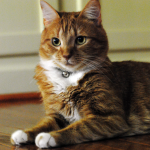Your feline friend’s sudden surge in meowing might have you puzzled, but fear not! Cats communicate through various meows, each carrying a unique message. However, an increase in meowing could signal an underlying concern that requires attention. Let’s unravel the reasons behind this uptick in vocalizations and when to seek assistance.
Common Reasons for Excessive Meowing
- Pain: Discomfort often prompts restlessness and sharp, piercing cries from cats in pain.
- Urinary Issues: Cats may meow while urinating or near the litter box if uncomfortable.
- Health Conditions: Kidney disease, hyperthyroidism, or cognitive dysfunction can lead to increased restlessness and vocalization.
- Sensory Loss: Deaf or blind cats may become more vocal as they lose their primary communication senses.
- Basic Needs: Hunger, thirst, or a dirty water bowl can prompt persistent meowing.
- Emotional States: Loneliness, boredom, stress, or fear can trigger excessive vocalization.
- Breed Traits: Some breeds like Siamese, Bengals, or Sphynx are naturally more talkative.
- Mating Behaviors: Cats in heat can emit loud, ear-piercing sounds.
- Attention-Seeking: Cats may meow to gain attention or express their desire to play.
- Learned Behavior: Cats quickly learn that meowing gets them what they want, so they use it to communicate.
- Outside Access: Indoor/outdoor cats may meow at doors to request entry or exit.
- Litter Box Alerts: Some cats signal a dirty litter box with an annoyed meow.
- Health Issues at Night: Hypertension, thyroid problems, or cognitive dysfunction can prompt nighttime meowing.
Understanding Kitten Meows
Kittens, developing their communication skills, may meow more frequently than adults. Their meows usually indicate needs like food, attention, or emotional distress.
Addressing Persistent Meowing
Ensure your cat’s basic needs are met before attributing the meowing to attention-seeking behavior. Refrain from rewarding excessive meowing with immediate attention. Instead, engage only when the cat is quiet.
When to Seek Veterinary Help
- Urgent Situations: Male cats struggling to urinate, or signs of distress or pain, warrant immediate vet attention.
- Additional Symptoms: Weight loss, appetite changes, or unusual urination patterns require a vet visit.
- Unexplained Changes: Any significant change in meowing, especially when accompanied by other symptoms, should be examined.
Veterinary Diagnosis
Veterinarians employ various approaches, including detailed questioning, physical exams, and potentially lab tests. Bloodwork and urinalysis help rule out medical causes, while behavioral issues might require behavioral treatments alongside medical evaluations.
Understanding your cat’s meows helps decode their needs, ensuring their well-being and maintaining clear communication between you and your feline friend.




